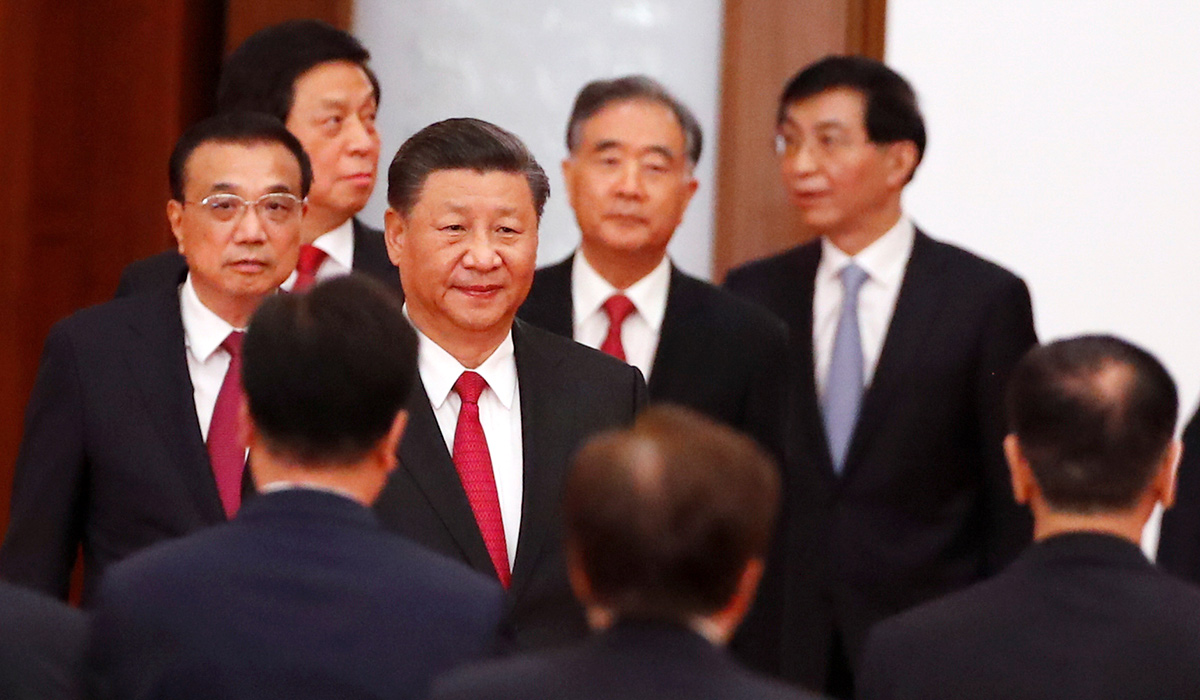DANIEL TENREIRO

Xi may see consumer software as trivial, but it is a key driver of the hard-tech leadership he desires.
Chinese president Xi Jinping is unleashing the full force of the state against the country’s tech sector. First it was Jack Ma’s quasi-disappearance, then the removal of rideshare company Didi from all mobile-app stores. Most recently, the government went after China’s online-tutoring companies, barring any education business from making a profit or receiving foreign capital.
Most observers have interpreted it as a power play: Xi’s asserting state dominance over increasingly powerful multinational companies. Others, such as Beijing-based tech researcher Dan Wang, give the party more credit, seeing the regulatory crackdown as a deliberate tactic in China’s technological grand strategy.
Late last year, Wang wrote that the Chinese government sees “hard tech” (semiconductors, aircraft, etc.) as “more valuable than products that take us more deeply into the digital world.” The party’s goal, he argues, is to “compress the wage and status premia of the internet and finance sectors” and thereby push workers and investors toward markets deemed more strategically important.
In a recent Foreign Affairs article, Wang describes this policy as a push toward technological self-sufficiency, spurred in large part by the effects of Trump’s trade war. Export restrictions over the past few years have left companies such as Huawei without key high-tech inputs for their equipment. Now, China’s tech firms “are trying to source domestic alternatives or design the necessary technologies themselves.” In Wang’s telling, “Trump’s gambit accomplished what the Chinese government never could: aligning private companies’ incentives with the state’s goal of economic self-sufficiency.”
Indeed, technological progress in China has come almost entirely from the private sector, with the government’s support but not under its direction. While companies such as Baidu, Alibaba, and Tencent have achieved spectacular valuations, Beijing’s state-led efforts in technology — focused primarily on hardware such as semiconductors and aircraft — have been lackluster.
At first glance, the manufacturing of complex hardware looks like something that a communist state should be relatively good at. Chip fabrication, for instance, requires massive scale and long-term capital, of which Beijing has both. Yet, despite receiving billions as part of the party’s Made in China 2025 initiative, China’s state-owned semiconductor foundry, SMIC, is far behind the foreign competitors on whose technology it depends.
All Our Opinion in Your Inbox
NR Daily is delivered right to you every afternoon. No charge.
This deficiency is a consequence of the fact that the “transfer” and theft of technology that has worked well for China’s software sector does not work for high-tech manufacturing. Complex hardware exhibits “experience curve effects” — high returns to knowledge accumulated by teams working on long-term projects — that cannot be replicated from whole cloth. A hacker in a garage can start a consumer-Internet company overnight; a jet-engine manufacturer takes many years and hundreds of employees to get off the ground.
It is no coincidence that Taiwan Semiconductor Manufacturing Corporation (TSMC), the world’s leading chip producer, was founded by a 25-year veteran of Texas Instruments. Nor that the company’s success depends on close relationships with Western electronics companies that trust TSMC with their intellectual property. The organizational capital that propelled TSMC to the top of global chip production is all but impossible to replicate in a country where IP is readily stolen and firms are liable to dishonor contracts.
Consider the ongoing chip shortage: If China were a key semiconductor supplier, it is not hard to imagine the CCP’s halting exports. As a result of political and legal risk, Chinese chip foundries are unlikely to receive the kick-start that would move them along the experience curve.
If Wang is right that Beijing is trying to push workers and investors toward hard tech, then its decision to kneecap software companies is likely to prove counterproductive. For one, capricious interference in the affairs of businesses is precisely the kind of behavior that inhibits the formation of organizational capital necessary for hardware production — moving software engineers into hardware roles does nothing to solve the problem.
Second, and just as important, software and hardware enjoy a symbiotic development relationship. Consider artificial intelligence, which takes as inputs data, algorithms, and computing power (to put it simply). The development of each component in this AI “triad” feeds into the rest. An economy with advanced software capabilities is one that demands more computing power. The existence of large firms that excel in collecting data (thanks to virtually nonexistent privacy protections) and analyzing it (China produces more AI papers than the U.S.; a crude measure, but a measure nonetheless) increases the returns to domestic hardware development.
In other words, shrinking the consumer-software sector necessarily reduces domestic demand for advanced hardware. In the U.S., sales of Mac computers have long driven revenue for Intel, thereby subsidizing hardware R&D. That is a positive externality for the economy, because the computational power directed to trivial consumer uses is available to, say, government researchers and the military.
Xi may see consumer software as trivial, but it is a key driver of the hard-tech leadership he desires. By putting the party’s willingness to undermine businesses on full display, Xi has made it less likely that China will achieve “indigenous innovation.”
No comments:
Post a Comment